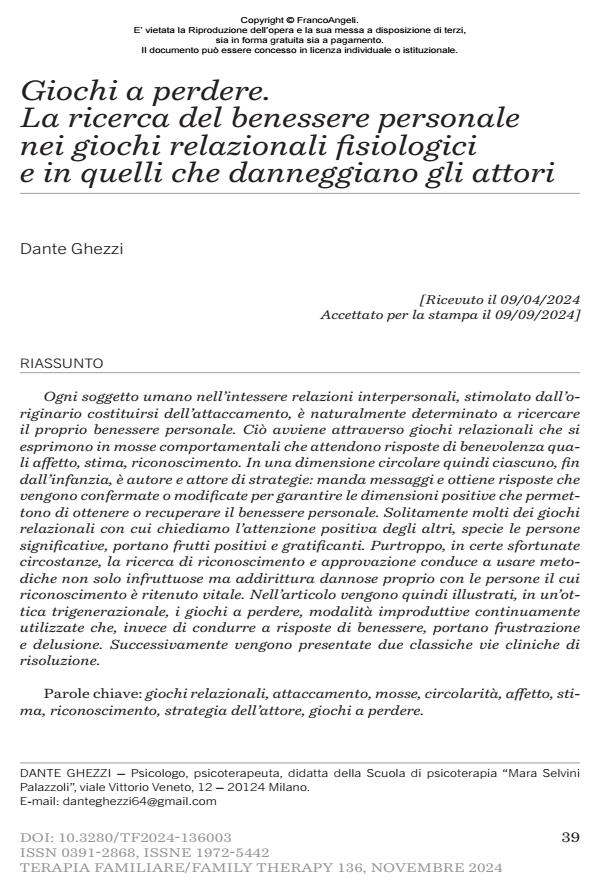Searching for personal wellbeing in physiological relational games and in lose-lose games
Journal title TERAPIA FAMILIARE
Author/s Dante Ghezzi
Publishing Year 2025 Issue 2024/136
Language Italian Pages 19 P. 39-57 File size 625 KB
DOI 10.3280/TF2024-136003
DOI is like a bar code for intellectual property: to have more infomation
click here
Below, you can see the article first page
If you want to buy this article in PDF format, you can do it, following the instructions to buy download credits

FrancoAngeli is member of Publishers International Linking Association, Inc (PILA), a not-for-profit association which run the CrossRef service enabling links to and from online scholarly content.
Every human subject in weaving interpersonal relationships, stimulated by the original constitution of attachment, is naturally determined to seek his or her own personal well-being. This occurs through relational games that are expressed in behavioral moves that await benevolent responses such as affection, esteem, and recognition. In a circular dimension, therefore, each person, from childhood onward, is an author and actor of strategies: he or she sends messages and gets responses that are confirmed or modified to ensure the positive dimensions that allow personal well-being to be achieved or regained. Usually many of the relational games by which we seek the positive attention of others, especially significant others, bear positive and rewarding fruit. Unfortunately, in certain unfortunate circumstances, the quest for recognition and approval leads to the use of methods that are not only fruitless but even harmful with the very people whose recognition is deemed vital. The article then illustrates, from a threegenerational perspective, the games of lose-lose, unproductive modalities that are continually used and that, instead of leading to feel-good responses, bring frustration and disappointment. Two classic clinical pathways of resolution are then presented.
Keywords: relational games, attachment, moves, circularity, affection esteem recognition, actor strategy, lose-lose games.
Dante Ghezzi, Giochi a perdere. La ricerca del benessere personale nei giochi relazionali fisiologici e in quelli che danneggiano gli attori in "TERAPIA FAMILIARE" 136/2024, pp 39-57, DOI: 10.3280/TF2024-136003